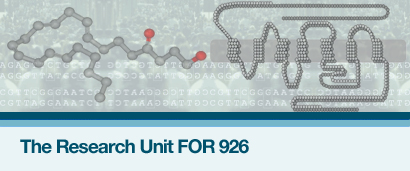Research Highlights
Cannabinoid receptor activity on inhibitory neurons protects against aging
Brain aging is associated with cognitive decline that is accompanied by progressive inflammation processes in the brain. However, the molecular mechanisms that underlie cognitive deficits arising during aging are largely unknown. Not least because of the increasing ageing population, there is a growing need to develop novel ways to treat or prevent cognitive deficits. It is thought that the balance between pro-aging factors and the activity of the anti-aging defense system determines the speed of aging. In the past, our group identified the endogenous cannabinoid system (ECS) as possible part of this defense system influencing brain aging. Activity of the ECS protects the neurons, is involved in the regulation of glial activity and influences the progression of age-related learning and memory deficits.
Andras Bilkei-Gorzo already showed that mice lacking the cannabinoid receptor 1 (CB1 knockout mice) showed an accelerated age-dependent deficit in learning (Bilkei-Gorzo et al. 2005 and 2010). This deficit is accompanied by a loss of neuronal cells in the hippocampus, a brain region that plays a central role in learning and memory processes. In a very recent study that is now published online in PNAS, Önder Albayram from our lab and colleagues investigated the development of age-related cognitive deficits and the underlying histological, molecular changes in genetic models of reduced endocannabinoid signaling. Aged mice, similar to elderly persons, have difficulties to learn or to adapt to new conditions. In a behavioral test for spatial learning in mice, the animals have to find an escape platform in a water tank. Aged control animals learned slower to localize the platform compared to young ones, and also the onset of this deficit came up earlier in mice lacking CB1 receptors. This memory impairment was accompanied with an enhanced activity of microglia, which are immune cells of the brain. By using a genetic technique that allows the inactivation of the CB1 receptor protein just in a specific type of neurons in the mice, they were able to identify those cells that were responsible for the animals’ poor performance. Thus, only the deletion of the CB1 receptor in GABAergic neurons resulted in a similar cell loss and increased neuroinflammation in the hippocampus as observed in animals lacking the receptors in all cells. Önder Albayram now suggests that activation of CB1 receptors on GABAergic neurons plays an important role in the regulation of microglia cells, which protects against age-related changes in the brain and thus against cognitive deficits.
ORIGINAL RESEARCH PAPER
O. Albayram, J. Alferink, J. Pitsch, A. Piyanova, K. Neitzert, K. Poppensieker, D. Mauer, K. Michel, A. Legler, A. Becker, K. Monory, B. Lutz, A. Zimmer, and A. Bilkei-Gorzo. Role of CB1 cannabinoid receptors on GABAergic neurons in brain aging. PNAS 2011; published ahead of print June 20, 2011, doi:10.1073/pnas.1016442108.



 2011_Albayram_PNAS.pdf
2011_Albayram_PNAS.pdf